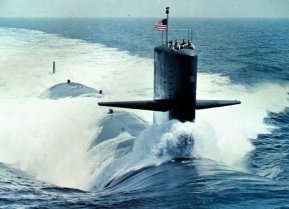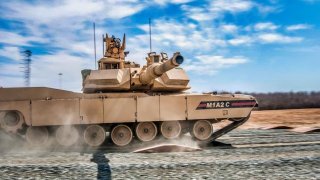Don't Let Russia Win the Ukraine War
Russia’s future threat to Europe depends largely on the outcome of its war with Ukraine. A Ukrainian victory would strengthen European security and potentially lead Ukraine toward NATO and EU integration, deterring future Russian aggression. However, a Russian victory could embolden President Vladimir Putin’s ambitions to restore influence over former Soviet territories, posing a renewed risk to Europe.
Russia after War with Ukraine: How Large a Threat?: Russia today poses a significant military threat facing Europe and the trans-Atlantic community. The Kremlin’s barbaric, unnecessary war of aggression against Ukraine, the largest, bloodiest conflict in Europe since World War II, will continue for some time, but it will not last forever. What kind of threat might Russia pose to Europe after the war concludes?
The answer: it depends.
Does Russia Win or Lose in Ukraine?
While the Russian military has momentum on the battlefield, one should not overestimate their progress. The Russian army occupies only a bit more Ukrainian territory than it did in January of this year, and far less than it did in mid-2022. That is not to say that Ukraine is winning, but the Ukrainians remain determined in what they regard as an existential fight. It would be a mistake to count them out.
A Ukrainian victory that resulted in the Russians out of all or even most of Ukraine’s territory would bolster the security and stability of Europe. A victorious Ukraine would face a daunting recovery challenge, but it presumably would be firmly on a path to integration into the European Union and NATO. That would diminish the prospects of future conflict with Russia.
For Russia, losing would prove traumatic, especially for the Kremlin. How would unhappy Russian leaders, which in this case might not include Vladimir Putin, respond? At the worst, they would rebuild their battered conventional army and dream of revenge. But they most probably would face a Ukraine that was or about to become a member of NATO and be deterred.
In the best case, not necessarily the likely case, the loss would create an opportunity for change. Earlier defeats in Russian history have sparked attempts at reform and renewal, some more successful than others, and sometimes upheaval. Perhaps Russia’s leadership, especially a new leadership in the wake of defeat in Ukraine, could come to terms with the loss of its empire and turn inward to build a Russian state that develops living standards, prosperity, and opportunity for its people. Such a Russia would pose less of a threat and could find a welcome back into the European community.
A Russian victory, on the other hand, would pose a much darker threat to Europe. It would raise the question of whether Putin’s ambitions end with Ukraine. The Russian leader talks about recovering "historic Russian lands". In the late 18th century, the Russian empire included Finland, the Baltic states, and a large part of Poland, all now members of NATO.
Putin does not like the Alliance. It does not stem from fear of a NATO invasion. Russia has pulled eighty percent of its troops from the Norwegian and Finnish borders opposite the strategically important Kola Peninsula. That hardly suggests concern about an attack.
What Putin does not like is that the Alliance constrains his ability to reassert Russian influence and physical control in the former Soviet space and central and eastern Europe.
Would Putin emboldened by victory in Ukraine and with a few years to rebuild his military attack a NATO state? Most analysts would rule that out, and they might well prove correct. But had those analysts been asked in 2018 whether Russia would launch the kind of invasion it launched against Ukraine in 2022, they most likely would have ruled that out as well.
Underestimating Putin carries risk, especially given his record of miscalculation, the 2022 invasion stands as Exhibit A.
Suppose that Ukraine were to lose the war following a cut-off of U.S. and/or European assistance, with not a single American or NATO soldier having died. Would Putin then calculate, or miscalculate, that a Russian incursion into, say, eastern Estonia, would provoke the Alliance to go to war against Russia?
That is the kind of threat that a Russia victorious over Ukraine could pose to Europe. For the sake of a stable and secure Europe, it is better to stop Russia in Ukraine.
About the Author:
Steven Pifer is a former U.S. ambassador to Ukraine, is an affiliate of the Center for International Security and Cooperation at Stanford University.
Image Credit: Creative Commons and/or Shutterstock.


